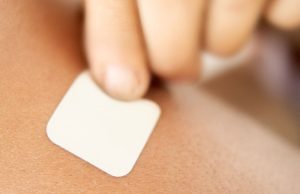How to quit smoking. Smoking is the inhalation of smoke from burning tobacco (usually from pipes, cigars, or cigarettes), which spreads nicotine and more than 7,000 compounds throughout the body, including at least 69 recognized carcinogens. It damages almost every organ, especially the heart and lungs, and is the greatest preventable cause of death in the United States, accounting for around 480,000 deaths each year.
HOW TO QUIT SMOKING
Most tobacco users either want to smoke or have strong cravings for tobacco goods. But you can fight these urges. When you have a strong want to use tobacco, keep in mind that the need will likely go away in five to ten minutes, regardless of whether you indulge in a cigarette or a chewing tobacco dip. Every time you overcome a desire to smoke, you get one step closer to giving up tobacco use permanently.
1. Consider utilizing nicotine replacement;

Inquire with your physician about nicotine replacement treatment. The available choices consist of Prescription nicotine in the form of an inhaler or nasal spray Over-the-counter nicotine patches, gum, and lozenges Prescription non-nicotine stop-smoking medications including bupropion
2. Avoid triggers;
Desires to smoke or chew tobacco are probably stronger in the settings where you used to smoke or chew tobacco, like bars or parties, or during stressful moments while you’re drinking coffee. Identify your triggers and make a plan to either avoid or deal with them.
3. Delay;

Tell yourself to hold off on giving in to your urge for tobacco if you feel like you need to wait ten minutes. Then, throughout that period, engage in some self-distraction.
4. Chew on it;
To help you avoid the need to smoke, give your mouth something to do. Enjoy chewing gum or hard candy. Alternatively, nibble on crunchy and delicious raw carrots, almonds, or sunflower seeds.
5. Don’t have ‘just one’;

How to quit smoking
If you feel a yearning for tobacco, you could be tempted to have just one cigarette. However, do not deceive yourself into believing that you should end there. Having one almost often results in having more. Additionally, you might start smoking again.
6. Get physical;
Engaging in physical activity can assist you in avoiding smoke cravings. A few quick movements, like rushing up and down the stairs, will help quell an urge for tobacco. Take a jog or a stroll outside.
7. Try relaxation techniques;

How to quit smoking
You might have used smoking as a stress-reduction strategy. It might be stressful to combat a tobacco urge on its own. Try these relaxation techniques to help you de-stress, like deep breathing, yoga, massage, muscular relaxation, visualization, and relaxing music.
Summary
Setting a specified “Quit Day,” using nicotine replacement therapies (patches, gum, lozenges) or prescription drugs (bupropion, varenicline), and altering daily routines to avoid triggers are the best ways to stop smoking. Cravings can be controlled with the support of friends, therapy, and methods like the “4 Ds” (Delay, Deep Breathe, Drink Water, Do Something Else).